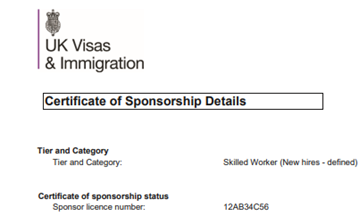Houseparents and Residential Wardens (SOC Code 6134)
Houseparents and residential wardens play a crucial role in creating a nurturing and supportive environment for residents in various settings such as care homes, residential schools, and community living. Their responsibilities encompass a range of duties aimed at fostering the well-being and development of individuals in their care.
- Establish a Safe Environment: Create a friendly and secure atmosphere, building trust and confidence with residents.
- Encourage Development: Plan and participate in games and leisure activities that promote emotional, social, physical, and intellectual growth.
- Address Material Needs: Ensure all material needs of residents are met and proactively resolve any issues they may face.
- Support Education: Ensure that students attend school regularly, facilitating their educational journey.
- Manage Domestic Duties: Oversee household management, including domestic responsibilities necessary for daily living.
- Counseling Support: Provide one-to-one counseling or group therapy to address the emotional and psychological needs of residents.
- Community Engagement: Establish and maintain contact with the surrounding community and the residents' families and friends, fostering strong support networks.
- Collaboration with Professionals: Maintain communication with other staff members and social workers to discuss residents' problems and progress.
- Documentation: Keep accurate records and write reports to document residents’ developments and any concerns that arise.
With an increasingly diverse population seeking residential support in the UK, the need for dedicated and skilled houseparents and residential wardens continues to grow. This guide aims to assist HR professionals in navigating the complexities of hiring and sponsoring these vital roles under the UK’s immigration framework.
What is SOC Code 3411 for Houseparents and residential wardens?
SOC Code 6134 refers to houseparents and residential wardens who create a supportive environment for individuals in their care. Their responsibilities can include:
- Creating a friendly, secure atmosphere: Fostering trust and confidence among residents to ensure a sense of safety and belonging.
- Planning and participating in activities: Engaging in games and leisure activities that promote emotional, social, physical, and intellectual development.
- Meeting material needs: Ensuring that all basic necessities of residents are provided and actively working to resolve any issues they may face.
- Encouraging school attendance: Supporting and monitoring students to ensure they attend school regularly.
- Managing household duties: Overseeing domestic responsibilities to maintain a clean and functional living environment.
- Providing counselling services: Offering one-to-one counselling or facilitating group therapy sessions to support residents' emotional well-being.
- Establishing community connections: Maintaining contact with members of the surrounding community and/or residents' family and friends to foster relationships and support networks.
- Collaborating with staff and social workers: Keeping in touch with other staff members and social workers to discuss residents' progress or any challenges faced.
- Maintaining records and writing reports: Documenting residents’ progress and concerns to ensure accurate tracking and communication.
Houseparents and residential wardens play a vital role in the development and well-being of individuals in residential settings, contributing to their growth and adaptation in society.
Eligibility to Hire Houseparents and residential wardens (SOC Code 3411)
1. Job Requirements
Houseparents and residential wardens must demonstrate the ability to create a supportive environment and possess specific qualifications or experience criteria. These may include:
- Interpersonal Skills: Ability to build trust and rapport with residents, fostering a friendly and secure atmosphere.
- Activity Planning: Experience in organizing and participating in games and leisure activities aimed at enhancing emotional, social, physical, and intellectual development.
- Problem-Solving Skills: Capable of identifying and addressing the material needs and issues faced by residents.
- Educational Support: Ensures residents attend school regularly and provides assistance to promote academic success.
- Household Management: Experience in domestic duties, ensuring the smooth running of the household.
- Counseling Skills: May require experience in providing one-to-one counseling or facilitating group therapy sessions.
- Community Engagement: Establishes and maintains relationships with community members, families, and friends of residents.
- Communication Skills: Maintains regular communication with staff and social workers regarding residents’ progress and any concerns.
- Record Keeping: Ability to accurately keep records and prepare reports on residents’ activities and progress.
Ensure that the job description aligns with SOC Code 6134 and that candidates’ experience and qualifications meet the expectations for the role.
- Salary Thresholds
- Use the Minimum Salary Calculator to ensure your salary offer meets immigration requirements.
Sponsoring Houseparents and residential wardens: A Step-by-Step Guide for HR Professionals
Once you’ve confirmed that the role and candidate meet the eligibility requirements, follow this step-by-step guide to sponsoring Houseparents and residential wardens under SOC Code 6134.
Step 1: Obtain a Sponsor Licence
Before hiring non-UK Houseparents and residential wardens, your company or institution must obtain a sponsor licence. This licence enables you to legally sponsor overseas Houseparents and residential wardens under the Skilled Worker Visa program.
- Sponsor Licence Application: Submit documentation proving that your business is legitimate and has a genuine vacancy. Visit the sponsor licence application guide for more information.
- Sponsor Licence Fees: Small businesses typically pay £574, while larger institutions pay £1,579. For more information, visit the sponsor licence fees guide.
- Processing Time: Applications typically take up to 8 weeks, but using the Sponsor Licence Priority Service can reduce the processing time to 10 working days.
Once your sponsor licence is approved, you will receive a sponsor licence number, which allows you to assign Certificates of Sponsorship (CoS).
Step 2: Assign a Certificate of Sponsorship (CoS)
Once you have your sponsor licence, the next step is to assign a CoS to the Houseparents and residential wardens. This document provides key details about the job and the individual being sponsored.
- Defined vs Undefined CoS: Use a Defined CoS for Houseparents and residential wardens applying from outside the UK, and an Undefined CoS for those already in the UK. Learn more in the Defined & Undefined Certificates of Sponsorship guide.
- Required Documents: Provide details such as the Houseparents and residential wardens’s portfolio, passport and job offer. Refer to Documents Required for Certificate of Sponsorship for a full list of necessary documents.
Step 3: Apply for the Skilled Worker Visa
Once the CoS is issued, the Houseparents and residential wardens can apply for the Skilled Worker Visa.
- Visa Fees: Fees vary depending on the role and visa length—use the visa fees calculator to estimate the costs.
- Immigration Skills Charge: Employers are required to pay this charge as part of sponsoring non-UK workers. This is separate from visa fees.
Conducting a Right to Work Check for Houseparents and residential wardens
Before the Houseparents and residential wardens begins working, you must conduct a right to work check to ensure they are legally allowed to work in the UK.
- Manual Right to Work Check: Verify original documents such as the Houseparents and residential wardens’s passport and visa.
- Online Right to Work Check: If the Houseparents and residential wardens holds an eVisa, you can use the UK government’s online system to verify their right-to-work status.
For more details on how to perform these checks, see the right to work check guide.
Post-Hiring Responsibilities and Compliance
- Record-Keeping and Reporting
- Record-Keeping: Maintain accurate and up-to-date records of the Houseparents and residential wardens’s employment details, salary and contact information.
- Reporting Changes: Report any significant changes to the Houseparents and residential wardens’s role—such as promotions or salary increases—via the Sponsor Management System (SMS).
- Sponsor Licence Duties and Compliance
- Failure to comply with your sponsor licence duties can result in penalties or sponsor licence revocation, impacting your ability to sponsor future Houseparents and residential wardenss.
How Borderless Can Help with Sponsoring Houseparents and residential wardens
Sponsoring Houseparents and residential wardens under SOC Code 6134 can be a complex process, but Borderless can simplify it for you. We offer comprehensive support to help you manage the entire sponsorship process.
End-to-End Sponsorship Support
At Borderless, we assist with:
- Sponsor Licence Application: Guiding you through the application process and ensuring all required documents are submitted correctly.
- Certificate of Sponsorship Assignment: Streamlining the CoS process to make hiring easier.
- Compliance Management: Helping you stay compliant with immigration laws to avoid penalties.
If you need assistance with hiring or sponsoring Houseparents and residential wardens, get in touch for personalised support.
Conclusion
Hiring and sponsoring Houseparents and residential wardens under SOC Code 6134 can be a rewarding way to enrich the cultural landscape of your organisation. By following the steps outlined in this guide, you can successfully navigate the sponsorship process while ensuring compliance with UK immigration laws.
For further guidance, Borderless is ready to assist you with all your sponsorship needs. Contact us for expert advice.
Automate Home Office Audits with Borderless
The Borderless platform provides a centralized system for all sponsorships, automating reminders for key tasks and ensuring best practices across your organization, simplifying audit preparation and ongoing compliance.






